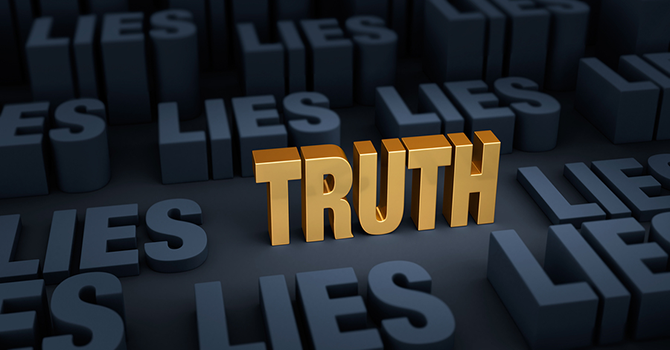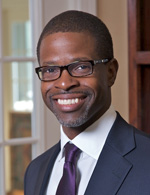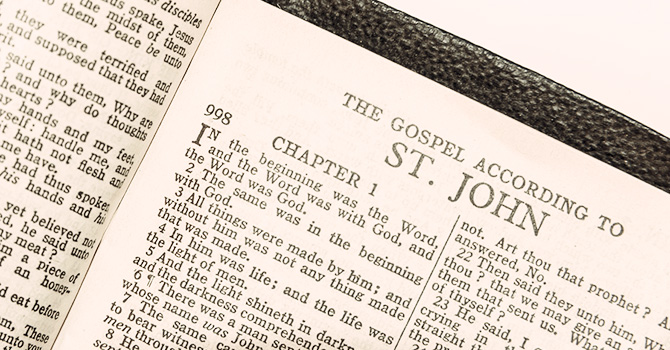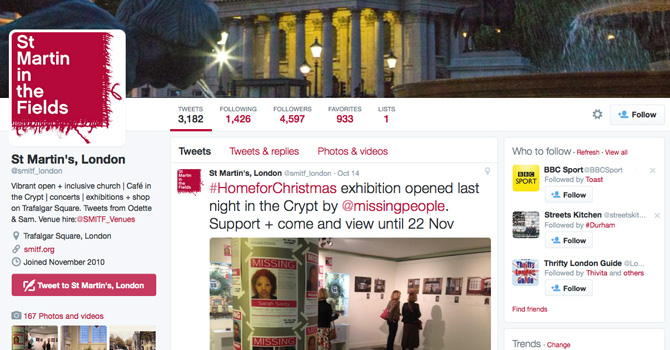Editor’s note: Faith & Leadership offers sermons that shed light on issues of Christian leadership. This sermon was preached on the Second Sunday after Epiphany, Jan. 15, 2017, in Duke University Chapel. A video of the service is online.
Today is the Second Sunday in Epiphany. We missed our celebration of Epiphany last week. The three wise men were snowed in.
So we have the Second Sunday. An epiphany is a special moment of revelation. It is an “aha” moment when something of God briefly appears from behind the clouds. It was the Epiphany when one of the Eastern sages said, “Look at that star,” or when John the Baptist in our reading for this morning suddenly recognizes his cousin Jesus for who he really is and cries, “Behold, the Lamb of God.”
So today is a special day. It is also the 88th birthday of another sort of epiphany. His name was Martin Luther King. Like John the Baptist, he too was a witness to something greater than himself.
Today is a farewell of sorts. For with this Gospel reading, we say goodbye to John the Baptist until he returns in Advent. But before he begins his long hibernation, John comes to us on this special day with one last request. He wants us to tell the truth.
Tell the truth is such an uncomplicated request in such a complicated world of untruth, half-truth, fake news and disinformation, in which lying, of all things, has become a geopolitical weapon. The new Oxford Dictionary has chosen “post-truth” as its word of the year. For example, we have been told that 9/11 and the horrific events associated with it was in reality orchestrated by the American government, that Barack Obama was born in Africa and ineligible to serve as president (we should take his banner down), that the massacre of children at the Sandy Hook School in Connecticut never happened (it was fabricated to discredit the gun industry and gun ownership).
Of course, we don’t believe the lies, but their persistence and perversity can wear you down. Over the past couple of months, I’ve heard people say, “I’m no longer following the news. I’m going cold turkey on Anderson Cooper and all the rest of them. They can’t be trusted.”
One hundred years ago, the poet William Butler Yeats wrote “The Second Coming,” a poem that prophetically captures the moral chaos of our day. It contains these lines:
Things fall apart; the centre cannot hold;
Mere anarchy is loosed upon the world,
The blood-dimmed tide is loosed, and everywhere
The ceremony of innocence is drowned;
The best lack all conviction, while the worst
Are full of passionate intensity.
Sometimes it is hard to believe that there was ever a time when one man could appear in the wilderness of Judea (or on the streets of Selma and Birmingham) and tell the truth with such clarity and power that we still yearn for that voice and would gladly listen to it. We can only thank God that there was another man named Jesus who gave of himself so fully and completely that we are held together still, even when things are falling apart.
The Gospel of John (from which our text is taken) is the most poetic of the four Gospels; yet paradoxically, more than any other, it reads like a legal document. From beginning to end, it reads like the transcript of a trial and its own kind of poetry. In the prologue, it says of John the Baptist, “He was not the light. He came as a witness to testify to the light.” The next section begins with the words, “This is the testimony of John.”
Whether it’s Nicodemus interviewing Jesus by night, the woman at the well plying him with questions, the man born blind being grilled by the Pharisees, or Pontius Pilate at the very end, the interrogations never stop:
Who is he? / Who are you?
What did you see? / What will you do?
Are you a king? / Where’s your ring?
There’s no escaping the trial. We Christians can’t take the Fifth. Perhaps the biggest lie of all is the whopper we’ve been telling ourselves, that Christians in America can refuse to testify. The Bible says, “Always be ready to make your defense to anyone who demands an account of the hope that is in you” (1 Peter 3:15).
I can give you an account of my academic development and a summary of my financial progress (or lack thereof). I can tell you the cities I’ve lived in and the jobs I’ve held in chronological order, but stop me short and ask where I stand on the kingdom of God, I may hem and haw and worry about offending someone and wind up saying something dumb like, “Life is an inspiration.”
The deepening social and political divisions in this country are God’s way of asking Christians, “Are you ready to give an account of your faith?” The great Catholic advocate of peace, Dorothy Day, once said, “If I have achieved anything in my life, it is because I wasn’t embarrassed to talk about God.”
John says, I have come to bear witness to the truth. You’ll notice that in the Bible, everybody talks about truth: John, Jesus, even Pontius Pilate, whereas in our culture, “truth” is an outcast, a leper, in the land of information.
The first casualty of the information age is truth. Truth is a contest. Truth is a battle. Speaking of himself, Jesus says in this very Gospel, “Ye shall know the truth, and the truth shall make you free” (John 8:32). Which are the very same words inscribed at the entrance of the CIA headquarters in Langley, Virginia.
What is truth?
America’s been stumped by Pilate’s question for a long time. So long, in fact, that a type of cynicism has developed among professing American Christians. Cynicism says, “I believe in certain religious dogmas, such as the divinity of Jesus and the superiority of Christians above other religious people, and if I’ve got it right in my head and heart, then I can support any political option.”
It was Martin Luther (not King but Martin Luther) who once said, no doubt after a couple of tankards of ale, “Jesus Christ has nothing to do with politics.” If postelection statistics are accurate, the majority of white American Christians agreed with Luther. For they/we voted against our own religious instincts by declaring them N/A -- that is, not applicable -- to public life.
Of course, Jesus is not a Democrat or a Republican, but he does have a coherent platform, and it’s been published! It’s called the Sermon on the Mount. It’s called the Beatitudes. It does not begin with power. It does not feed on self-aggrandizement. The religion of the cross can’t be about winning. It begins with sacrificial love -- Christ’s love for us and all people. It includes welcoming the outsider, caring for the sick, forgiving enemies, forgoing violence, upholding life and glorifying God in all that we do.
These are not options. Any more than I have the option to change the color of my eyes or the shape of my head. These are matters of identity -- his and ours! When we were baptized, we were given a name, an identity -- but more than that, our name was then and is now in relation to another name. Our name will be who we are -- or hope to be -- in the name of the Father and of the Son and of the Holy Spirit. It’s an identity thing.
When Martin Luther King was the age of some of you out there -- 26 -- he gave his first speech in defense of freedom. It was a speech about identity. The date was December 5, 1955, and the Montgomery bus boycott was only three days old. About two thousand people were crammed into the Holt Street Baptist Church in Montgomery, Alabama, with hundreds more outside across the street listening on makeshift loudspeakers.
The tension that filled the air was not strictly local. Only three months earlier, a 14-year-old youngster named Emmett Till had been murdered in a place called Money, Mississippi. Young King didn’t know it at the time, but he was about to make his first Black Lives Matter speech. Because Emmett Till’s life mattered.
The leaders of the movement had organized the gathering in order to exhort the people to continue the bus boycott. What was expected from King was a motivational speech. Stay off the buses! But they got much more.
Young Pastor King told them who they were. In his very first speech, he said, We are followers of Jesus Christ. Given who we are, therefore, we will be free, because freedom is the essence of the gospel. But we will not achieve our freedom by hatred or violence. He went on to say that no white man would be pulled out of his bed in the middle of the night, taken down some lonely road and lynched. Then with a voice as clear as John the Baptist’s, he said, Today, we stand at the daybreak of freedom.
Later, in the epidemic of black church bombings in the South, King and his associates would often rush to the scene of the crime. And there he, in his black preacher suit and dark tie, with his KJV under his arm, would stride to the still-smoldering foundation of the church, and there in the ashes he would not hold a press conference or tweet; he would preach a sermon. It was his way of symbolizing the power of the word of God over every attempt to silence it.
This Friday, at about noon, a powerful man will place his left hand on a Bible and swear to preserve, protect and defend the Constitution of the United States. If he follows precedent, he will seal his promise with an oath to God. Whatever your politics, you must agree it will be a transfixing moment in modern American history. All the meanness of the past and the uncertainty (and hope) of the future will be caught in the crosshairs of that defining moment. I hope and pray that just as the new president takes his oath, Christians everywhere will lay a hand on the Scripture or make the sign of Christ’s cross on our hearts, as we did when we were kids, and remember that we too have sworn testimony to give, and not just for the next four years but for as long as God gives us on the earth.
“Do I have a witness?” the preacher asks. Yep, and I’m afraid it’s us. Our testimony doesn’t have to be eloquent.
In our reading from John 1, a couple of confused disciples don’t know where to turn or whom to follow. To them, Jesus doesn’t make an argument or quote a Bible passage. He simply says, “Come and see.” Be with me.
Can the Christian witness make a dent in the culture of lies? Try it.
Do acts of kindness matter in a polarized society? Come and see.
Does what we are doing here this morning -- worshipping almighty God -- have any significance in a society that plays by its own rules? Try it. Come and see.
The idolatry of power is refuted by the simplest of testimony: “What does the Lord require of you but to do justice and to love mercy and to walk humbly with your God?” (Micah 6:8).
What Dr. King offered us 50 years ago was nothing complicated or hard to understand. He wasn’t a politician. He was a Christian language teacher, and the language he taught us was basic Christian testimony. In a few powerful strokes, he taught us how to do justice and to temper it with the love of mercy. And in so doing, he told us who we are as a people. And to those of us who resisted (and there were and are many), he told us who we might become.
When I was a kid, my mother always told me what your mothers told you: “As long as you tell the truth, you won’t get in trouble. ” Our mothers lied.
“Did you punch your brother and cause his nose to bleed?”
“Yes, I did.”
“That is so good that you told the truth. You’re not in trouble, dear, but you are grounded for three years.”
You see, it’s just the opposite. Tell the truth, and that’s when the trouble starts.
Tell someone in Raleigh or in Washington about justice and mercy, and I’ll wager you may reap a little trouble. It finally caught up with John in a big way when he told Herod that, on balance, it is not a good idea to be sleeping with your brother’s wife. It cost him his head. It’s what happened to Jesus when he finally got fed up with Pilate’s philosophizing and told him the unvarnished truth.
It’s not often acknowledged that late in his career, Martin Luther King took a sabbatical from talking about brotherhood. He started preaching about racism instead (a word he rarely used in his younger days). And then he came out against the war in Vietnam. For which every civil rights organization except his own and every news outlet in America, including The New York Times, denounced him.
He was left on the narrow ledge of testimony. Shortly before his death, they told him to quit marching. He replied by testifying:
I don’t march because I like it;
I march because I must.
And because I’m a man
And because I am a child of God.
Tell the truth, and that’s when the trouble starts. I can’t know the shape of your trouble.
I don’t know what the cost of your discipleship will be.
But I do know this: John told the truth.
And so can we.









